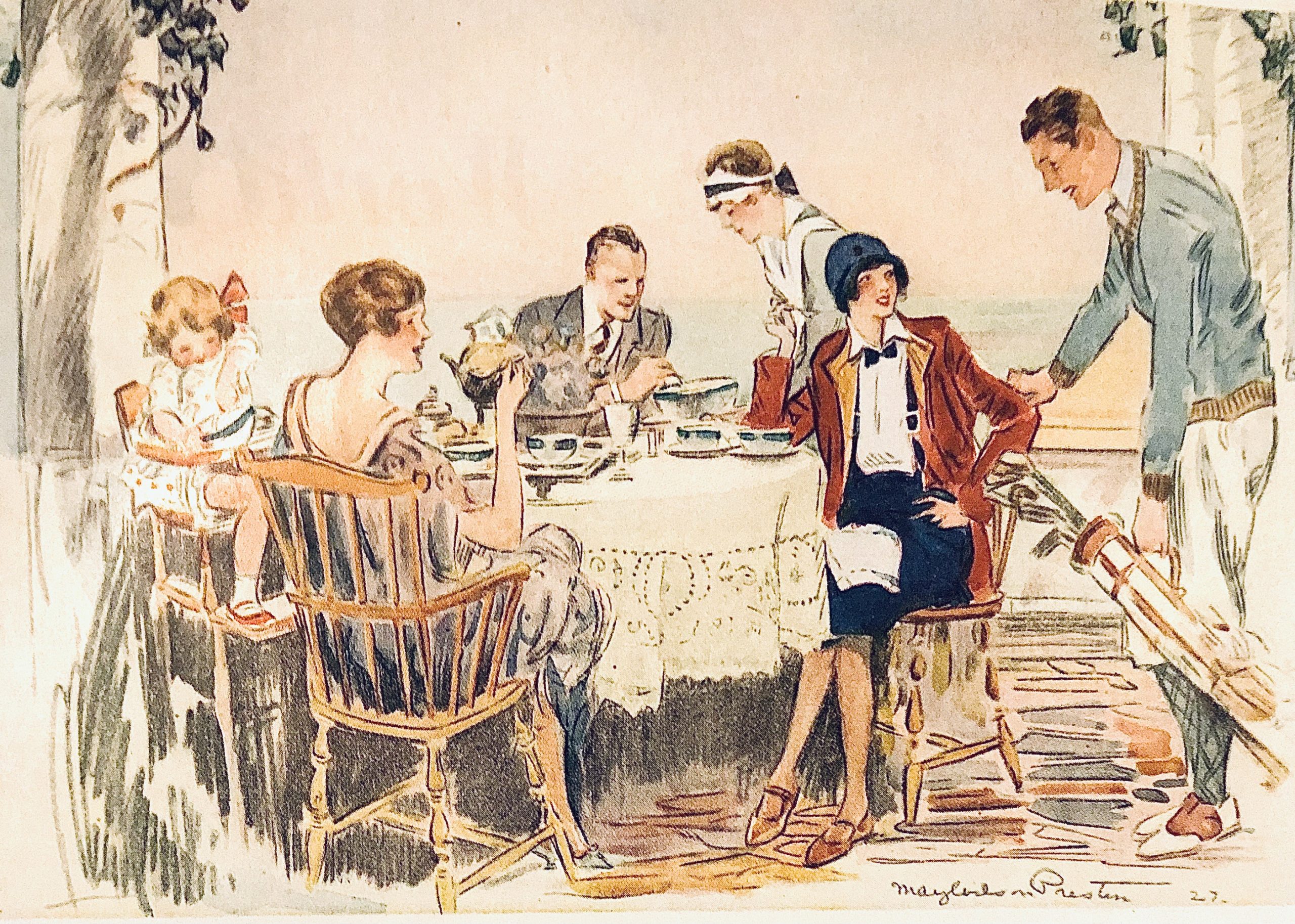My Friend,
In Grecian times citizens who had done wrong might be voted out of society. Ostracization meant that no one would speak to you and you would be driven from the town, never to return. It was literally, a living death. By the Victorian times, a newer, subtler version of ostracization appeared that worked to great effect.
Cutting dead could appear in many forms. One was known as the Cut Direct. Direct because it was one on one. This snub required that you publicly looked someone in the eye and pretended not to know them.
The Cut Sublime was so-called because people would look towards the heavens until the unfortunate receiver of the cut had slunk away. That was deemed less painful than the direct cut.
Cutting dead was so effective because it implied without words, “You are beneath me, I do not acknowledge your existence.” This was never done in private, it was meant to humiliate and to then be followed by your friends and relatives. This is also why it is usually someone of higher standing who cut an outsider or parvenu. You generally needed social clout to make others follow you in ostracizing a hapless individual. On occasion a charismatic underdog could cut one of their betters. This, when done correctly, could be so devastating as to topple an adversary from their perch.
Do not assume however, that cutting was exclusively a mean girl technique. Men did it too. We know that cutting dead was practiced in the late 18th century, but it was Beau Brummell who truly began the fad for cutting. In a strange twist, the Prince Regent, George IV cut Beau Brummel and it backfired as people thought a man who was so high and mighty, shouldn’t use his considerable clout to diminish someone so far beneath him. The Regent’s cut lead to Beau Brummel’s most famous cut, (which likely solidified his own downfall) when he responded to George ignoring him by ignoring the Prince Regent in return and asking a nearby onlooker, “Who’s your fat friend?”. Had Brummell not responded and strategically demurred, he might have solidified the public behind him, but Brummell was not that type.
The regency began to see cutting practiced by so many that rules sprung up. It was an absolute cruelty for a man to cut a lady. It was social suicide for a single girl to cut a married woman. A host could not cut a guest, even if they got drunk and groped the butler. Even with these rules, so many people were snip, snip, snipping at each other, that etiquette books began pushing for The Cut to be used sparingly.
“The act of “cutting” can only be justified by some strong instance of bad conduct in the person to be cut. A cold bow, which discourages familiarity without offering insult, is the best mode to adopt towards those with whom an acquaintance is not deemed desirable. An increased observance of ceremony is, however, the most delicate way of withdrawing from an acquaintance; and the person so treated must be obtuse, indeed, who does not take the hint.”
Book of Fashion and True Politeness, by Chas. William Day (1856)
Indeed, cutting could not only have dire consequences for the person cut – from a complete social death, to blows to one’s business or marital prospects, but it could also be dangerous for the person who did the cutting. Duels were demanded and deaths occurred.
Only ten years later, cutting began to be seen as too harsh a punishment.
“What is called “cutting” another is never practiced by gentleman or ladies, except in some extraordinary instances or bad conduct on the part of the individual thus sacrificed. An increased degree of ceremony and formal politeness is the most delicate way of withdrawing from an unpleasant acquaintance. Indeed, what is called “cutting is rarely ever practiced by well-bread ladies and gentlemen.”
Martine’s Hand-book of Etiquette: And Guide to true Politeness, by Arthur Martine (1866)
So as the Victorians sped towards the turn of the century, ghosting became the preferred way to eliminate unwanted people from your life.
In 1922, Emily Post put the nail in cutting’s coffin when she wrote:
“For one person to look directly at another and not acknowledge the other’s bow is such a breach of civility that only an unforgivable misdemeanor can warrant the rebuke. Nor without the gravest cause may a lady “cut” a gentleman. But there are no circumstances under which a gentleman may “cut” any woman who, even by courtesy, can be called a lady.”
This one applies today. Don’t ignore someone you know in public unless they’ve done something really, really bad. Don’t pretend to be on your phone and don’t act as if you don’t remember who they are.
Remember Beau Brummel? He made one cut too many, and without patronage or good will, ended up dying penniless in France. Don’t be like Beau.
I hope you all are well and happy, I promise not to cut anyone dead if I see you out and about! Much love, Cheri



